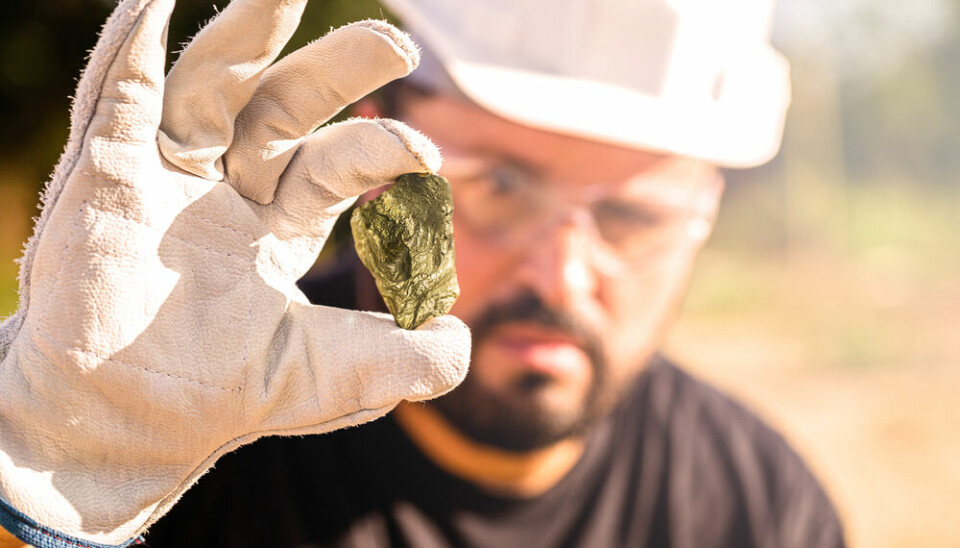Gold prospecting firm to target four communes in Brittany
Canadian firm's CEO believes valuable reserves have been overlooked
“There's a gold triangle in central Brittany”, one expert has said, after a Canadian geologist filed a permit request for the area
RHJPhtotos/Shutterstock
Prospecting for gold could begin in four communes in Brittany in the coming months, after a Canadian mining company asked for an ‘exclusive research permit’ to dig in the area.
The communes of Kervignac, Languidic, Nostang, and Hennebont are all in Morbihan. All have received multiple visits and a permit request from Canadian mining company, Breizh Resources, which is itself owned by Aurania Resources Limited.
The company’s project manager, president, and CEO, Dr Keith Barron, has managed mining exploration across nearly 20 countries for 39 years. He targets gold and rare metals such as lithium, silver, copper, antimony, and platinum.
His requests were a “complete surprise”, said Jean-Pierre Gourden, mayor of Nostang for 16 years. “We never expected to receive an application for a mining permit one day,” he said.
Michèle Dollé, the mayor of Hennebont, added: "We thought it was a joke.”
Gold, lithium, silver…and environmental issues
Explaining his interest in these areas of Brittany, Dr Barron said: “I think there were gold resources in ancient Gaul that we've lost track of.”
His company met with the mayors of the communes in November, in a bid to explain the steps that it would take to search the ground, and last November applied for a permis exclusif de recherche (PER, exclusive research permit). This is necessary for any exploration to take place.
Another meeting has just taken place now, in April, with representatives from all town councils.
The mayor of Nostang said: “We were told that this is a research permit to allow drones, helicopters and small boreholes, which could eventually lead to more extensive drilling over a hundred metres square or so.”
The commune authorities are now considering the French mining code, they said, as this requires "various steps such as public consultation and environmental issues” to be considered “before any resources are exploited”, they said in a press release on April 6.
“I'm really cautious,” said Mr Dollé. “Because [any mining] is likely to generate major environmental problems.”
The state will have the final say on whether the mining can take place.
‘Julius Caesar came back rich’
Dr Barron is definitely hopeful of finding some treasures in the land.
In a video interview with a mining specialist, he has already shared a 3.5kg rock containing 1kg of gold, which was found in Languidic in 1875 by road workers repairing a road using rocks.
This went on display at the Natural History Museum in Paris in November. “It weighs 3.5 kilos, and it has a kilo of gold in it, which is an incredible rate of gold. I was very intrigued by it,” said Dr Barron.
He also shared another piece from a similar area and time.
He added that his extensive research in French archives has led him to believe that Julius Caesar’s Gallic wars - between the years 58 and 52 BC - suggest that there is gold in ‘ancient Gaul’.
“Julius Caesar went to war against many Gallic nations and came back very rich," said Dr Barron. "We're going to work with the French authorities and I hope we'll find a lot more than what I have in my hand [here with this rock]."
The gold prospector is also keen to look for other materials in other countries, including lithium. “These are minerals that we're going to look for in Russia, for example. President Macron has launched a major plan for electric batteries, so we're going to need lithium and rare metals,” he said.
“When you find something like this, as a geologist, you get very, very excited,” he said. “So my company Aurania, we’ve filed for the mineral rights over this area, and we’ll see what transpires with that.”
‘Gold triangle in central Brittany’
Brittany has its own share of gold prospectors, including Jacques Le Queré, who is considered to be an expert in the Kervignac area. He has found more than 2kg of gold in his searches over a 10-year period.
“There's a gold triangle in central Brittany around Pontivy, Loudéac and Mûr de Bretagne," he told France 3. “But this is what we call ‘alluvial’ gold.” ‘Alluvial’ means the gold was formed by streams and is rarely pure gold.
Mr Le Queré also said that the area has gold that is found in quartz ‘veins’, which results from “major geological upheavals,” he said.
“I know that there is a large quartz line that runs under Languidic and the Blavet," he says. “It's a big vein. So is that where the gold is?”
Rare metals are becoming more and more necessary for the manufacture of electronics and the price of gold has soared by more than 500% in 20 years.





























